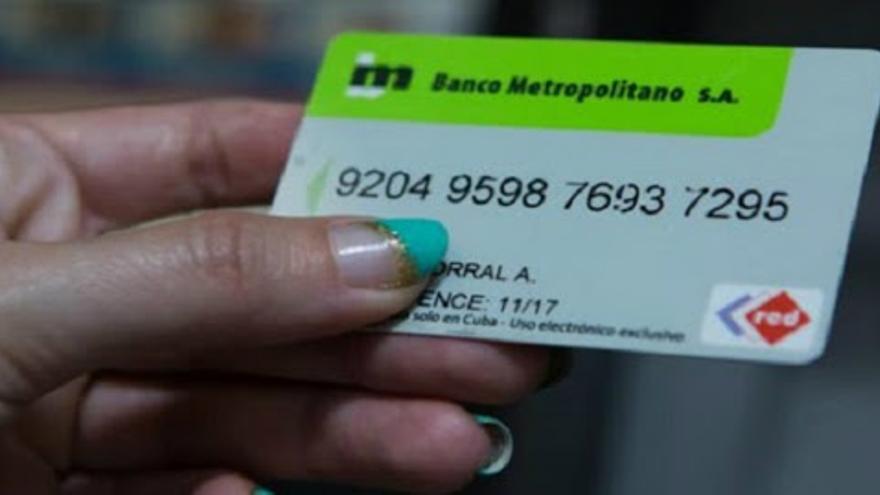
![]() 14ymedio, Havana, August 4, 2023 — State and private companies that purchase food products –both agricultural and of animal origin, including meat, poultry, dairy products and fish products – must pay for the wholesale purchase exclusively through electronic payment and immediately. The measure, which is part of the new rules for the “banking-ization” of the country, affects other products, such as bread and sweets, cigarettes, tobacco and matches, and raw materials or preparations for sale in gastronomic establishments.
14ymedio, Havana, August 4, 2023 — State and private companies that purchase food products –both agricultural and of animal origin, including meat, poultry, dairy products and fish products – must pay for the wholesale purchase exclusively through electronic payment and immediately. The measure, which is part of the new rules for the “banking-ization” of the country, affects other products, such as bread and sweets, cigarettes, tobacco and matches, and raw materials or preparations for sale in gastronomic establishments.
This package of news has been announced by the Minister of Domestic Trade, Betsy Díaz Velázquez, in an interview with the official newspaper of the Communist Party, Granma, published this Thursday night, in which she tries to give more explanations about the confusing government plan. According to the official, it is a proposal that is intended to “reduce the chains of non-payments” which, in her opinion, are hindering productivity and encouraging crime.
They are not the only sectors affected in a plan that will be deployed throughout the second half of the year. At the state level, electronic payment will be mandatory for a considerable list of services: the sale of construction materials, imported products “financed through access to the foreign exchange market,” fuel, accommodation, nightclubs, reservations in ground, sea and air transportation, in sports and cultural facilities, supplies – water, electricity, telephone and gas – and obituary services.
Díaz indicated that there will also be exclusive electronic payment for the leasing of private premises and that, in addition, the use of virtual stores should be the main way to promote and sell “idle and slow-moving inventories,” from wholesale sales to private ones, and leisure and transportation reservations.
The minister makes it clear what the Government’s priority is for those who do not adhere to the regulations: the suspension of the activity. The resolution of the Central Bank of Cuba indicated that establishments that repeatedly failed to comply with the provisions regarding deposits and cash withdrawals will face the closure of their accounts or suspension of banking services.
However, although it does make it clear that there will be a six-month period to adapt and implement the mechanisms aimed at prioritizing electronic payment, no type of sanction is set. The Granma note announces it as an important detail to highlight.
The text insists on the need for the program, which was approved by the Council of Ministers this Monday, due to the “already known difficulties with the extraction and availability of cash in the country,” and adds that the intention of the information is to clarify the dependence of Domestic Trade, the area that is fully affected by the regulations.
According to the note, the payment gateways will be Transfermóvil, Enzona, Remote Banking and “others that are developed.” In addition, it is noted that in order to grant the Commercial Certificate in Freely Convertible Currency (MLC) and the Commercial Authorization in pesos, it will be essential that the establishment have guaranteed conditions so that customers can use these payment methods. Those who can certify that they have a point of sale (POS) terminal “even when they are in the process of implementing payment through QR” will also be approved.
The two things affect both physical and virtual businesses that are managed by private or state companies and natural persons who carry out an authorized sales activity. This does not affect virtual stores with payments from abroad, which do not operate with Cuban banks.
The minister points out that it is necessary to create incentives for companies to join the program, including approval to create voluntary reserves for the development of electronic commerce so that businesspeople consider it an investment.
Variants are also planned to reward the consumer – among them some non-monetary ones, such as discounts or facilities to purchase tickets to different activities – and to motivate the seller, such as applying the payment for high performance and distinguishing in terms of profits, those who achieve more operations electronics.
But in addition to the incentives, “punishments” are also foreseen, such as the penalty for cash deposits for state-owned companies of local subordination, the percentage of which will increase if it is not possible to reduce at least that amount, and commissions will be charged for overcharging the box service.
In addition, Díaz announced that they are working on a training plan for both store managers and staff to promote electronic payment channels, although there are still many on the street who wonder if there will be the necessary connectivity to face a deployment of such caliber in a country where 4G is still missing too many times and barely reaches rural areas.
____________
COLLABORATE WITH OUR WORK: The 14ymedio team is committed to practicing serious journalism that reflects Cuba’s reality in all its depth. Thank you for joining us on this long journey. We invite you to continue supporting us by becoming a member of 14ymedio now. Together we can continue transforming journalism in Cuba.
